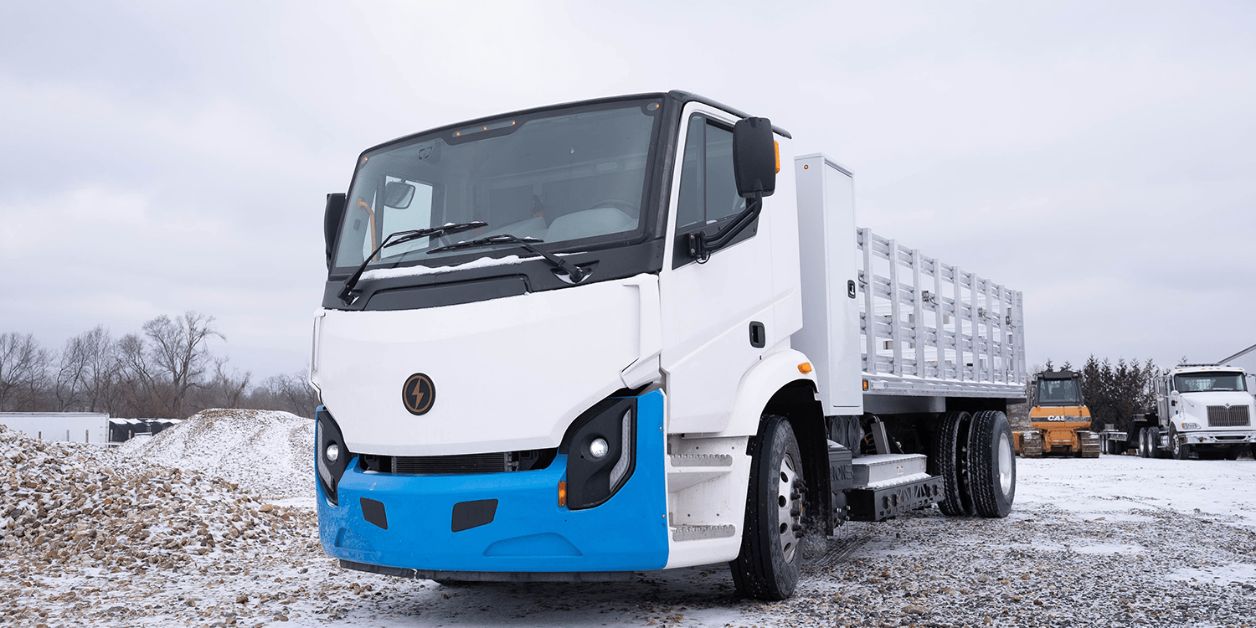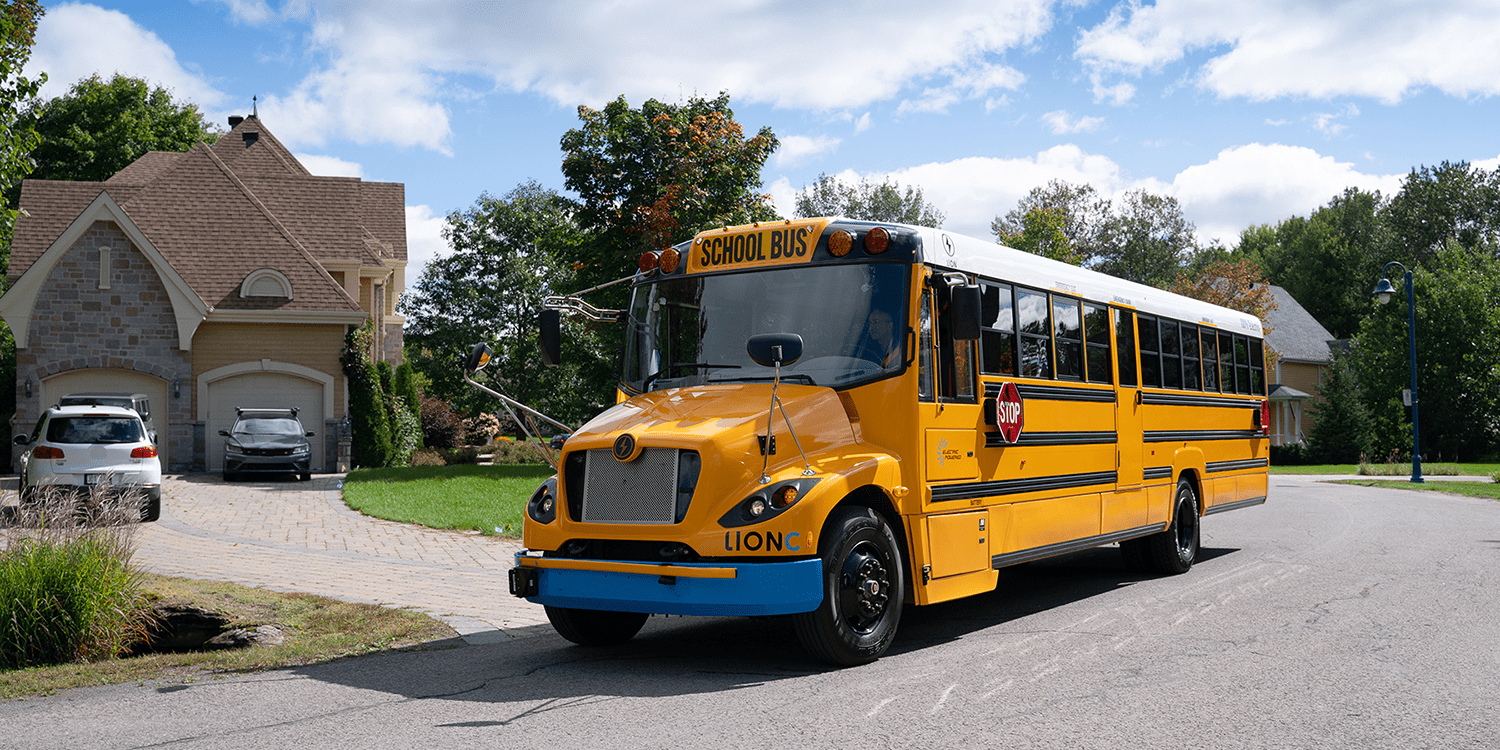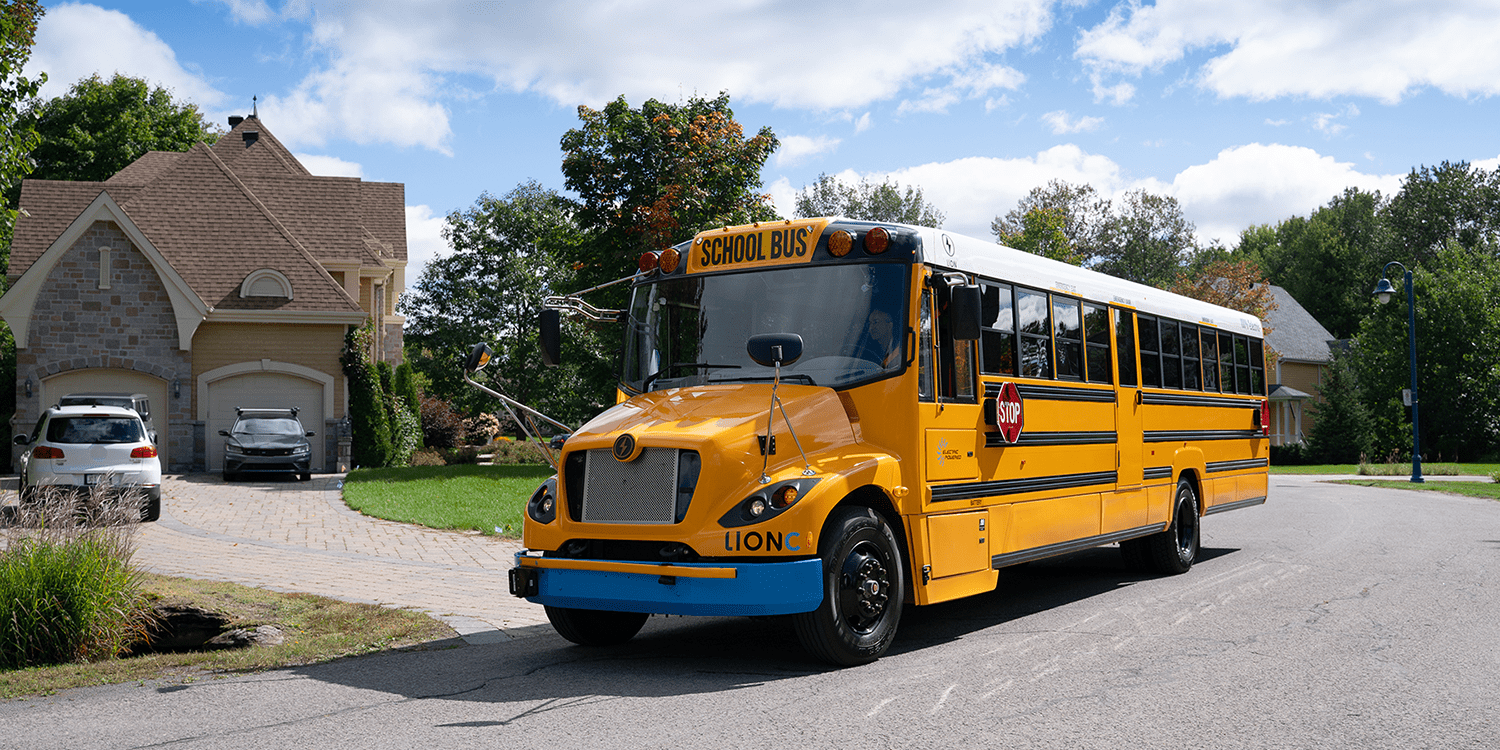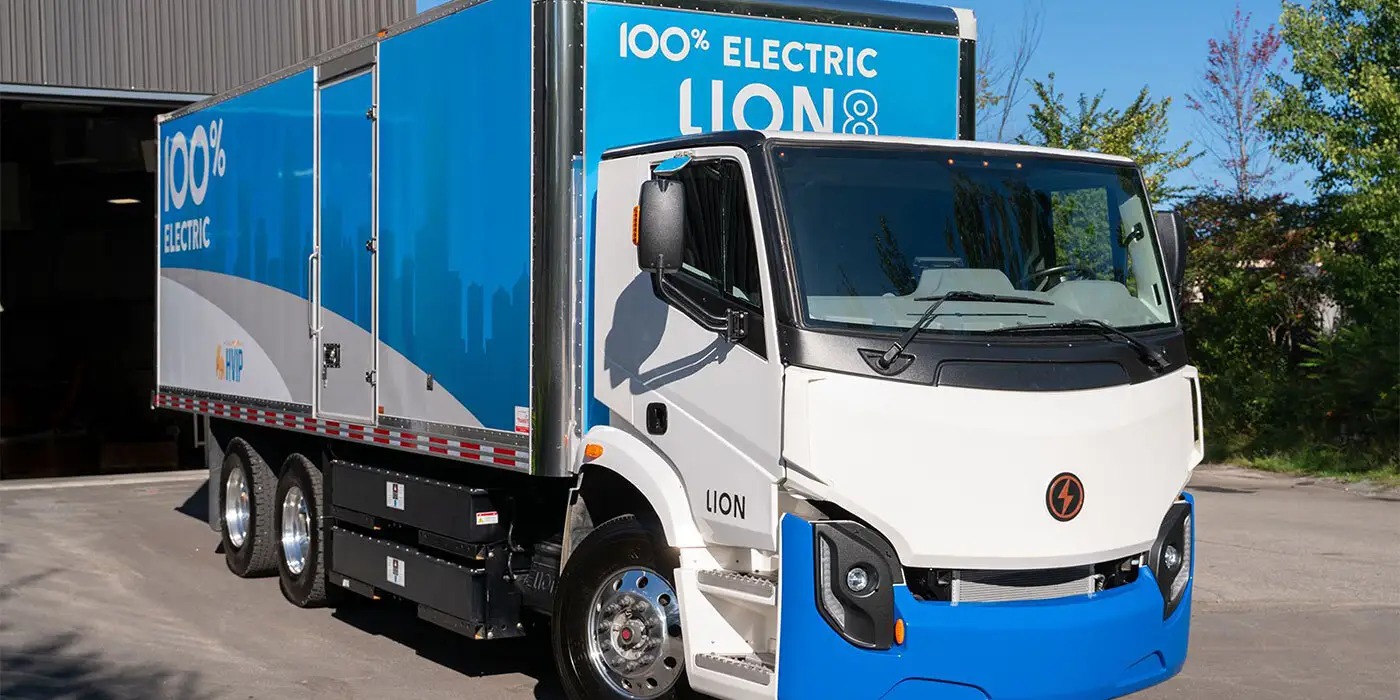Prince Edward Island has partnered with Lion Electric, a Canadian manufacturer of electric medium- and heavy-duty vehicles, to deploy electric school buses for emergency power supply at community disaster relief centers during power outages.
Lion Electric, headquartered near Montreal, Quebec, is renowned for its production of the iconic yellow North American school buses. The company has emerged as a leader in the electric vehicle sector.
The LionC electric school bus, equipped with a battery capacity ranging from 126kWh to 210kWh, boasts impressive power capabilities. Of particular relevance to this development is its vehicle-to-grid (V2G) functionality.
V2G refers to the capability of an electric vehicle to supply energy back to the power grid, rather than solely drawing energy from it. While few cars currently possess this feature due to limited consumer applications, it holds greater potential for fleet usage.
In the case of Prince Edward Island, the smallest province in Canada, Lion’s V2G technology will be employed to provide power to temporary community shelters during emergency situations.
Last year, the island experienced the remnants of Hurricane Fiona, which brought winds of up to 150 km/h (93 mph), resulting in power outages affecting 95% of the island.
To cater to the affected population during the blackout, the province established “warming centers” across the island, offering food, shelter, and the ability to charge electronic devices. One such center was the North Rustico Lions Club in the small town of North Rustico, which has a population of 648.
During the storm, the Lions Club relied on a diesel generator to maintain power continuously. However, with the implementation of Lion’s V2G technology, the need for a generator will be eliminated, ensuring a cleaner, quieter, and safer power supply for the warming center. Enhancing safety is crucial, as one fatality during last year’s storm occurred due to carbon monoxide poisoning resulting from generator use.
According to Lion Electric, two electric buses equipped with LionC’s battery can provide approximately three days’ worth of power for the Lions Club. It’s worth noting that Lion Electric and Lions Club are unrelated organizations; their names are coincidental.
This initiative serves as a pilot program, with Lion Electric and the province sharing the initial costs. The province has already placed an order for over 200 electric school buses from Lion, 82 of which are expected to be in service by the end of next month.
Moreover, the province aims to extend the benefits beyond emergency response. It plans to leverage these buses to contribute to grid cleanup efforts by charging them during periods of low demand or when renewable electricity generation is abundant. The buses can then discharge energy into the grid, assisting in offsetting the reliance on polluting peaker plants during high-demand periods. The province proudly declares that the electrification of school buses is a crucial component of its net-zero strategy, setting an example for the rest of the nation.







